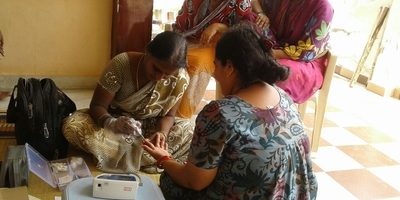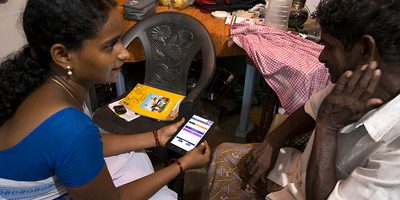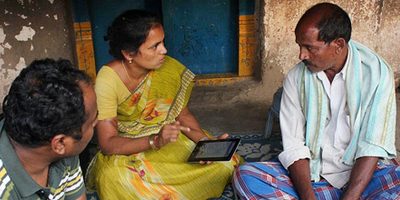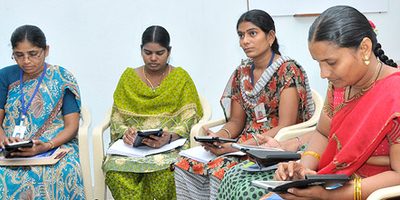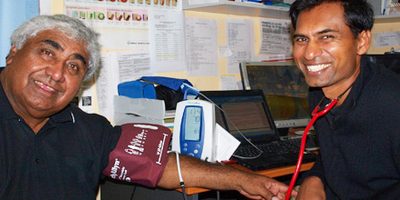
Systematic Medical Appraisal, Referral and Treatment (SMART) Health
Of the seven billion people alive today, only two billion have reliable access to the primary healthcare required to manage the conditions most likely to cause premature death or disability. The other five billion comprise people living on less than $5 per day (two-thirds of whom actually live on less than $2.50 per day).
Ability to pay is not the only barrier to healthcare access: the systems that fund and deliver care are dysfunctional in many low and middle-income countries, and the workforce, particularly the medical workforce, is far too small to deliver care even to those in urgent need.
SMART Health is a primary healthcare “ecosystem” for resource-poor settings that is designed to enable the Systematic Medical Appraisal, Referral and Treatment (SMART) of patients at high-risk of premature death or disability.
The system was initially developed for the management of common cardiovascular diseases in rural and remote Australia, and has recently been extended to rural India with support from the Global Alliance for Chronic Disease. However, SMART Health offers much broader potential to transform primary healthcare for a range of those conditions most likely to kill or maim people living in resource-poor settings.
How it works
A new healthcare workforce supported by innovative technologies and processes offers the promise of affordable sustainable primary care on a scale larger than has ever previously been possible. SMART Health is built on three key principles:
- It is designed specifically with users (both consumers and providers) at front of mind
- All components and processes are based on the best available evidence
- The services delivered must be widely affordable to the community in which they are offered.
SMART Health provides the primary care workforce with a suite of smartphone-based applications that include a simple electronic health record, wireless point-of-care diagnostics and series of evidence-based algorithms for the management of patients with, or at high-risk of, premature death or disability.
Continuous central monitoring of user satisfaction, clinical performance and disease outcomes provides the data necessary to ensure quality, safety and self-improvement. Other applications also provide support for operational management (eg critical supply chains) and capacity building (eg in-service training).
Support from global research agencies has helped us develop primary care research networks in rural India and China that now provide a framework within which the impact of SMART Health on major clinical outcomes such as death and permanent disability can be rigorously assessed.
Selected publications
- Raghu A, Praveen D, Peiris D, Tarassenko L, Clifford G. Engineering a mobile health tool for resource-poor settings to assess and manage cardiovascular disease risk: SMARThealth study. BMC Med Inform Decis Mak. 2015 Apr 29;15(1):36.
- Praveen D, Patel A, Raghu A, Clifford GD, Maulik PK, Mohammad Abdul A, Mogulluru K, Tarassenko L, MacMahon S, Peiris D. SMARTHealth India: Development and Field Evaluation of a Mobile Clinical Decision Support System for Cardiovascular Diseases in Rural India. JMIR Mhealth Uhealth. 2014 Dec 8;2(4):e54. doi: 10.2196/mhealth.3568. PMID: 25487047 [PubMed]
- Praveen D, Patel A, McMahon S, Prabhakaran D, Clifford GD, Maulik PK, Joshi R, Jan S, Heritier S, Peiris D. A multifaceted strategy using mobile technology to assist rural primary healthcare doctors and frontline health workers in cardiovascular disease risk management: protocol for the SMARTHealth India cluster randomised controlled trial. Implement Sci. 2013 Nov 25;8:137. doi: 10.1186/1748-5908-8-137.






